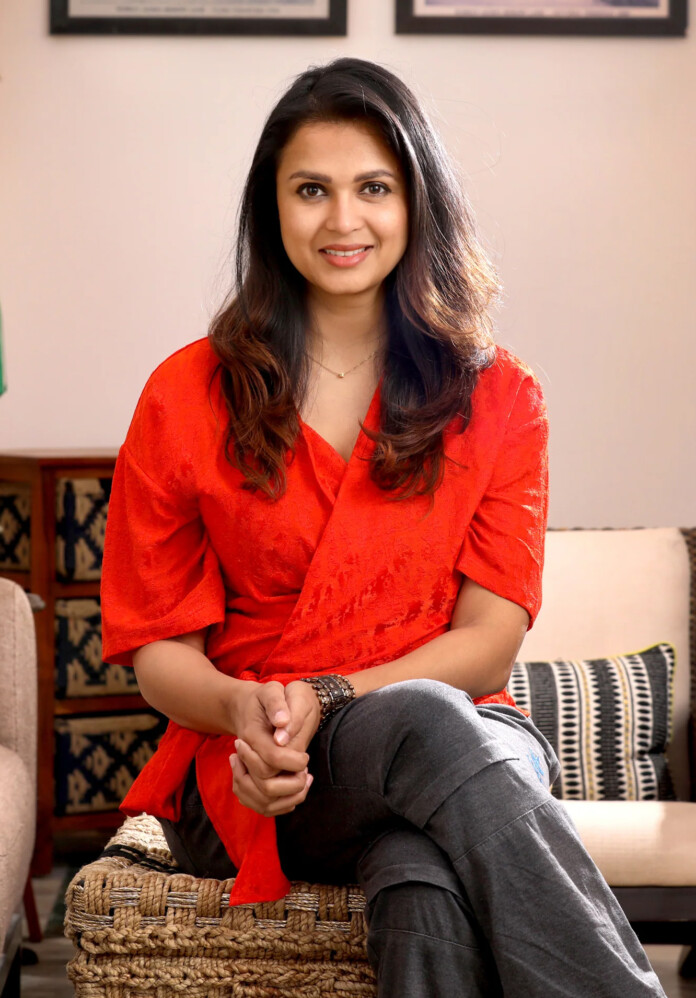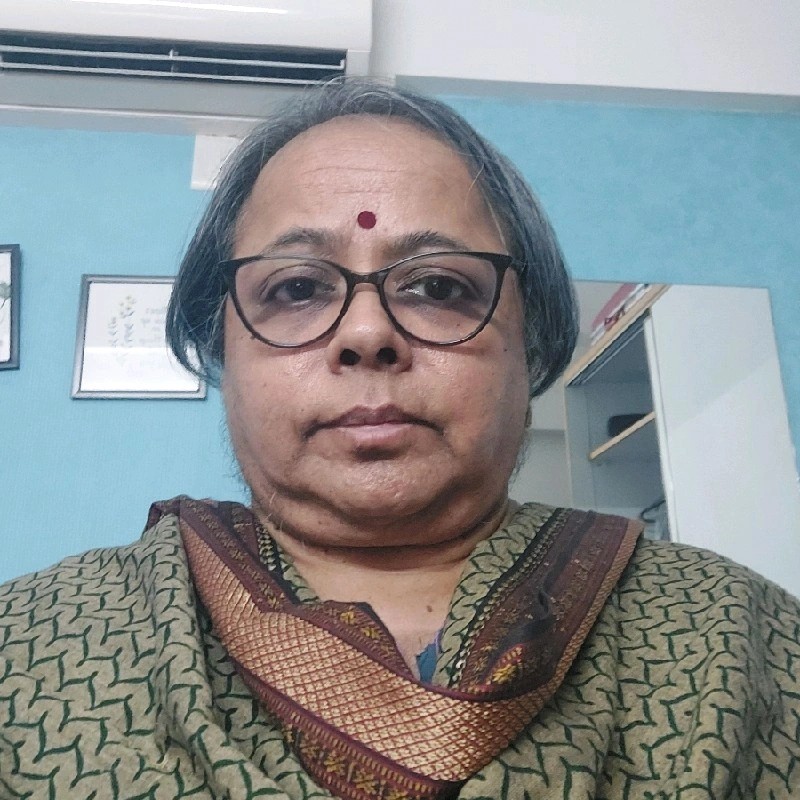At a young age, Gauri Malik saw women around her who were financially dependent on men, and this bothered her. “I come from Muzaffarnagar, a small town in Uttar Pradesh. I was inspired by the amazing skills of the women I encountered. Yet, I often saw their talent go unrecognised and unrewarded,” says Gauri. She empowers close to 1,000 artisans from five states and clocked an annual revenue of Rs 6 crore in 2023. The firm is named after the Sirohi village in Haryana.
She wanted to work with women and provide them with not just a livelihood, but also a sense of pride and dignity in their work. This motivated her to set up Sirohi, a for-profit venture that makes home decor and lifestyle products by upcycling textile and plastic waste.
Gauri, the founder and CEO of Sirohi, is a finance and economics post-graduate from UK’s Warwick Business School. She worked as an investment banker for three years. Bored by the monotony of her job, and filled with a deep-seated desire to work in the development field, she quit her job and set up Sirohi from her parents’ garage in 2019.
“We make high-quality and globally competitive zero-waste products with waste materials and natural fibres. The company’s innovative, tech-based approach ensures quality. Our products are also durable and long-lasting – another aspect of being eco-friendly,” says Gauri. The 37-year-old is currently based in Singapore with her husband and two daughters.
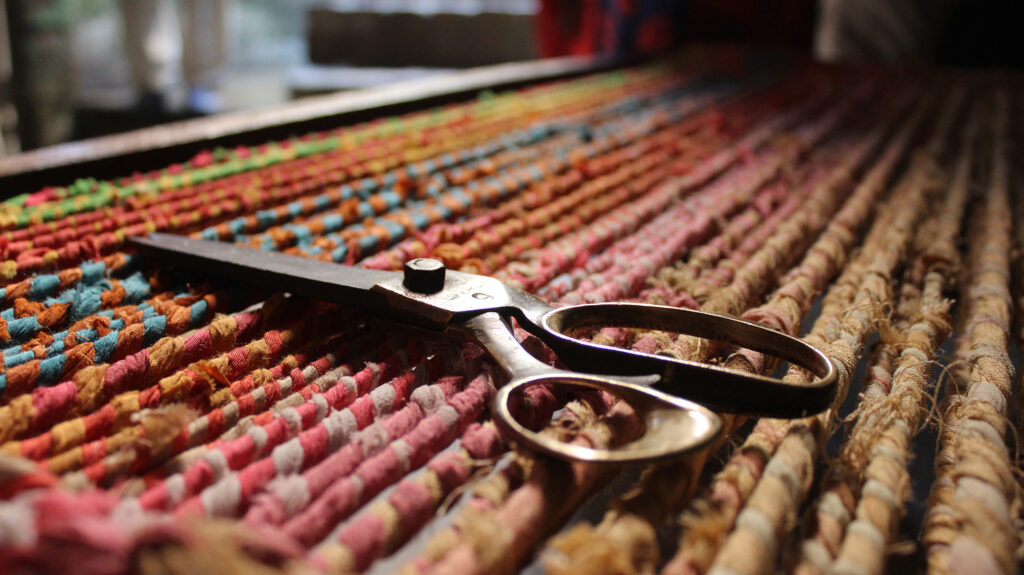
Environmental impact
“Sirohi’s environmental impact is something we take pride in. By collecting and reusing textile and plastic waste from industries, we are significantly reducing the amount of waste that ends up in landfills. This process helps lower the carbon footprint associated with waste disposal and incineration by cutting down on greenhouse gas emissions,” says Gauri.
Using natural fibres like cotton, jute, and locally sourced grasses blended with upcycled materials contributes to a reduction in the demand for virgin materials. New raw materials typically have a high carbon footprint. So, using upcycled materials helps conserve resources and reduces the environmental strain caused by traditional manufacturing processes, she adds.
As per our Impact Report for FY 2023-24, Sirohi has upcycled and utilised 1,20,000 kgs of textile and plastic waste, handcrafting 50,000 products. We have mitigated 3,00,000 kgs of CO2 emissions. An average product is made from 5 kgs of waste/natural fibre.
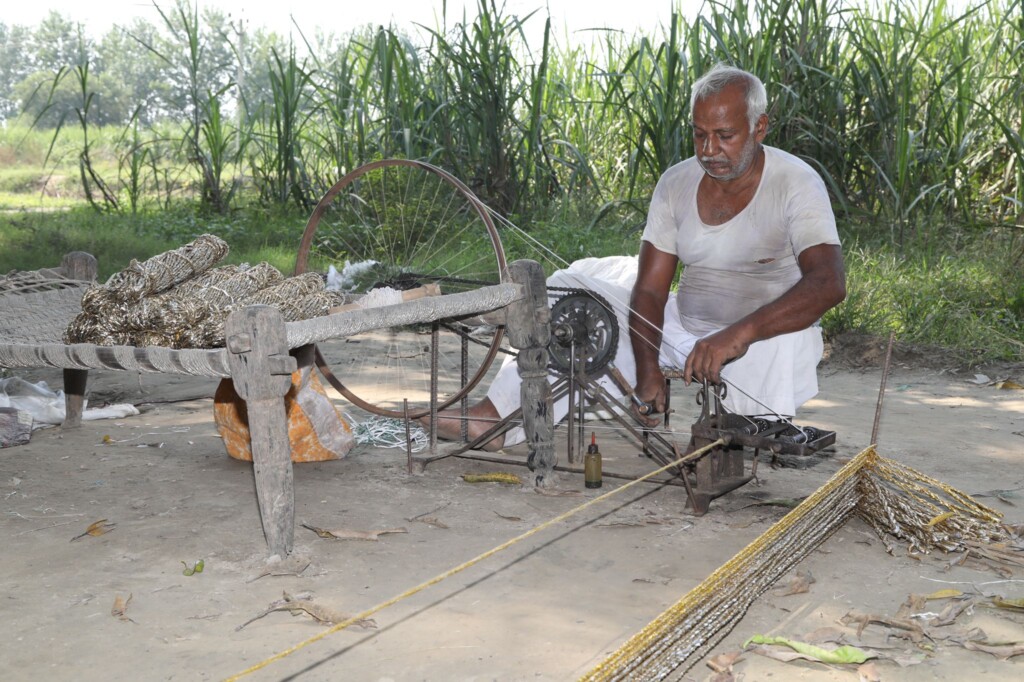
Sirohi’s commitment to sustainability extends beyond materials. “We employ traditional craft techniques, which often have a lower environmental impact compared to industrial production methods as they use less energy. By preserving and promoting these artisanal skills, we support a more sustainable and eco-friendly way of creating products.” Sirohi’s 15,000 sq ft facility in Muzaffarnagar is equipped with solar power facilities and a rainwater harvesting system.
Processes and Products
The firm collects textile and MLP (multi-layered plastic) waste from industries in Uttar Pradesh. Once collected, the waste undergoes a thorough cleaning to remove any impurities. After cleaning, the waste is carefully dried, ensuring it’s in the best condition for the next step.
This waste is then segregated and twined into ropes using both traditional charkha and modern rope-making equipment in a factory in Muzaffarnagar. “Most of our decor and furniture pieces are handwoven by our skilled artisans in Muzaffarnagar using these ropes. The ropes are combined with natural fibres to make the products,” explains Gauri.
Sirohi offers a diverse range of home decor, furniture, and gifting products. The collection includes stylish utility items like baskets, boxes, planters, candle stands, and storage solutions such as trunks and laundry baskets, starting from Rs 999. The furniture portfolio features elegant daybeds and ‘charpais’ (cots), benches and stools, and accent (meant to enhance design) tables and chairs, beginning at Rs 3,199.
The Sirohi website was launched with 37 products in 2020. After the pandemic struck, Gauri and her team used social media to gain visibility. The brand was showcased at Lakme Fashion Week and is certified by CraftMark. It focuses significantly on corporate gifting.
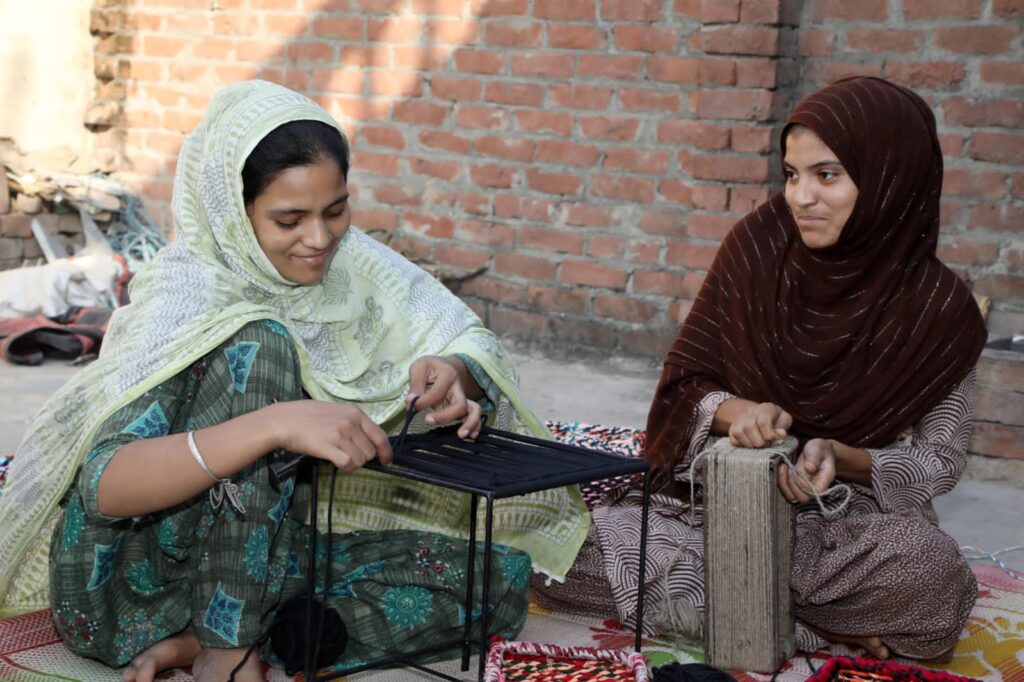
Creating a platform
Sirohi has created a platform that bridges the gap between rural artisans, women who had not seen life beyond household chores, and the global market.
Before Sirohi, Gauri had launched the Skilled Samaritan Foundation in 2012 to work with communities in Sirohi to provide solar power. The foundation supports Sirohi by providing tech-based design support to the artisans. It mobilises artisans, teaches the art of weaving, builds capacity, and conducts workshops for personal and professional development.
Today, Sirohi engages with over 950 artisans, mostly women, from marginalised communities across Uttar Pradesh (weaving and basketry), Rajasthan (furniture), Kashmir (paper), Maharashtra (copper and textiles) and Assam (basketry).
The artisan’s average monthly income has gone up from Rs 3,300 to Rs 7,850 from 2020 to 2024. This is 40 per cent more than the average artisan income in India. A stable income helps improve their quality of life.
The brand has seen 400 per cent annual growth since its inception in 2021. It has created direct incomes of above Rs 2 crore for the artisans. Significantly, Sirohi has reduced migration from crafts to other professions by 70 per cent.
The venture is supported by Upaya Social Ventures, IIMA Ventures, and Villgro, whose investments and resources help empower rural artisans and promote sustainable living. IIMA Ventures, also known as the Innovation Continuum at IIM Ahmedabad, has provided seed funding, incubation support, and access to a network of collaborators and partners. Villgro, a social enterprise incubator, has also provided crucial funding and support.
Gauri has received several awards including the UN Women Generation Equality Award and Face of Meta’s Fuel of India campaign 2021. Sirohi has received funds under the SFURTI scheme of the Ministry of Micro, Small & Medium Enterprises that seeks to regenerate traditional industries. The venture has worked with large retail partners.
“We want to scale the artisan base across India and increase production capacity to 10,000 units a month. We are aiming to reach international markets. We intend to set up a CXO team in India with brand partners in the US and Europe. We want to diversify and add various craft techniques, and more craft products. We plan to introduce three new weaving techniques in-house, says Gauri.
Gauri’s vision is to make people think of Sirohi as a sustainable brand from India and purchase more handmade products.
For more details – https://youtu.be/AdLo3cRqzAQ
Aruna Raghuram is a freelance journalist based in Ahmedabad. She writes on women’s issues, environment, parenting and social enterprises.


